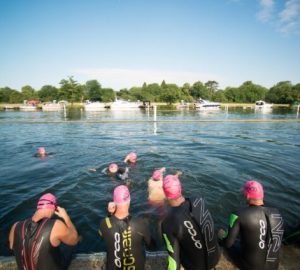RNLI’s message on cold water risks
The Royal National Lifeboat Institution (RNLI) are reminding swimmers and dippers to be aware of the risks after revealing that five people are alive today after being rescued in swimming related incidents last winter.
Whether you’re an experienced swimmer or just starting out on your cold water journey, even the well-prepared can find themselves in difficultly so having the correct knowledge and equipment is important and can save lives.
One of those saved was a sea swimmer who was struggling to get back ashore as the tide had turned. The alarm was raised by other swimmers and as the lifeboat from Portishead arrived the swimmer was struggling to stay afloat, drifting in and out of consciousness and extremely cold.
Volunteers from Hayling Island saved two swimmers who were spotted clinging to a buoy, while off the Sunderland coast, a group of swimmers called 999 after losing sight of one of their friends who was then saved by the RNLI. In Sligo Bay, Ireland, four swimmers found themselves in trouble in large swells. One person was recovered by the RNLI, one made it ashore independently and two others were airlifted to safety by the Coast Guard helicopter.
Liam Fayle-Parr, from the RNLI Water Safety Team said: ‘We’ve seen a big increase in the number of people taking up dipping and open water swimming, and it’s amazing so many people are feeling the benefits of a new activity. However for many, this is their first experience of the sea in the colder winter months, so we’re asking everyone to be aware of risks before they enter the water, know how to keep themselves and others safe, and to Respect the Water.
‘With the sea temperatures still dropping and reaching their coldest around March, the effects of cold water, combined with weather conditions and any personal health issues should be taken seriously before venturing in. If it’s your first time in open water, we’d recommend you speak to your GP first, particularly for those with cardiac or underlying health conditions.
‘There are a number of precautions you can take to help ensure you have an enjoyable and safe time. Avoid swimming alone, consider going with others or joining a group so you can look out for each other. Think about the depth of water and if you can, stay in your depth.
‘The most important thing to remember is if you are in any doubt, stay out of the water and if you or anyone else does get into trouble in or on the water please call 999 or 112 and ask for the Coastguard.
RNLI safety tips for taking a winter swim or dip:
- Be prepared – Check the weather forecast, including tide information and wave height. Take plenty of warm clothes for before and after your dip, along with a hot drink for when you come out of the water. Take a mobile phone in a waterproof pouch. Wearing a wetsuit will help increase your buoyancy and reduce the chances of suffering cold water shock
- Never swim alone – always go with a buddy, if possible, to a familiar spot and tell someone when you plan to be back
- Acclimatise slowly – never jump straight in as this can lead to cold water shock, walk in slowly and wait until your breathing is under control before swimming
- Be seen – wear a brightly coloured swim cap and consider using a tow float
- Stay in your depth – know your limits including how long to stay in the water and swim parallel to the shore
- Float to live – If you get into trouble lean back in the water, extending your arms and legs, and resisting the urge to thrash around to gain control of your breathing
- Call 999 or 112 and ask for the Coastguard – if you get into difficulty or see someone else in trouble call for help immediately
- If in doubt, stay out. Watch the RNLI video on ‘Top tips for cold dips’
- See the latest RNLI safety advice on a range of activities
You can also see our safety page for further advice on cold swimming.








